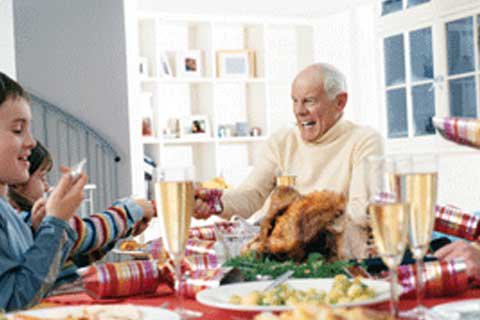
Special Needs Holiday
‘Tis the season of holly jolly parties and extended family visits. Calm? Not a chance! Bright? Absolutely! The gathering of friends and families are more likely to look like reindeer games than resting gentlemen. And, for families that have children with a disability, however mild or severe, there is more planning that goes into a fun, peaceful holiday season. Unfamiliar cousins, culturally diverse foods, and adapting to time zones can be a challenge, but with some simple advice from parents who have been there, it is possible to deck the halls without wanting to jump off the housetop.
Educate
Educate relatives about the nature of your child’s disability before the trip. Make a list of the most important information you want to share, including possible safety concerns and how the disability may affect the tone of the visit. As a caregiver, you know how a change in routine or certain behaviors can act as triggers. Offer age appropriate information to other children, and explain what they can expect to see. Answer any questions and offer any support websites if your friends and family are open to it. It can be a low-key conversation, with or without the child with the disability present.Speaking of presents, is it necessary to clear certain gifts ahead of time? While some people find it takes away from the spirit of the holiday, so can inappropriate gifts. While some things are obvious to the caregivers, they may not be to the Aunt who has never met your child before.
Schedule
If there are medications that need to be given on schedule, make it clear to the host ahead of time so they can be prepared. If your child benefits from routine, stick to it as much as possible. If your child is overactive, is there a pool, ice rink, or sledding hill nearby? If an overtired child is prone to becoming angry and easily agitated, stick to bedtime routines and times as much as possible. Because three time zones might be represented at the family gettogether, consider keeping “quiet hours” That benefit those who are late nighters and early birds. Then provide quiet activities, such as coloring books, crafts, or designated favorite videos only to be watched during these hours.
Plan for Success
There are some activities that a child with a disability may not be able to participate in. Always have an equally enticing option available for every child. For example, if the disability is physical and some children are going sledding, have a plan in place for your child as well. Perhaps take a trip to an aquarium or a movie, and recruit some family members to come along. If lack of rules will keep Johnny feeling insecure, choose games with specific instructions that everybody will enjoy. Kids won’t know what they couldn’t or didn’t get to do unless you make it a point to tell them. Maybe a favorite cousin or grandpa can think of something special to do with your child, like a trip to a favorite restaurant or store. One-on-one time might be just what your child needs.
Food
f your child has a severe peanut allergy, make it clear there will be no chestnut roasting. It needs to be clear to the host prior to accepting the invitation, and offer to bring “safe” foods to share. Extensive visits get trickier, especially if some cousins are allowed to eat sugar plums for breakfast and candy canes for a snack. It is necessary to have this conversation prior to driving Twelve hours for a visit so that everybody can agree on the menu. Again, offering to bring Gluten-free snacks is a great opportunity to be a hospitable guest.
Julia is a contributing writer to Genesee Valley Parent & Rochester Area Magazine. She lives in western New York. Contact her at
ju************@gm***.com
Views: 1




